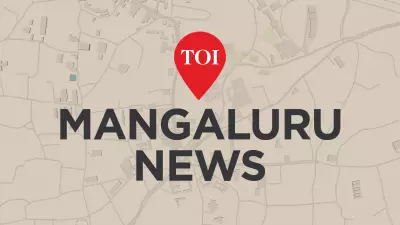
Punjab Chief Minister Bhagwant Mann on Monday strongly reiterated the state's legitimate claims over Chandigarh, Panjab University, and river waters during a crucial meeting with Union Home Minister Amit Shah. The 32nd Northern Zonal Council meeting held in Faridabad became the platform for Mann to voice Punjab's long-standing grievances and advocate for a genuine federal structure in the country.
Constitutional Mandate and Federal Structure
During his presentation, Chief Minister Mann emphasized that the Constitution clearly demarcates areas where both the Union and states should exercise their respective authority. He expressed concern that over the past 75 years, there has been a disturbing trend toward centralization of power, undermining the federal spirit envisioned by the Constitution's framers.
Mann specifically highlighted the Rajiv-Longowal Accord signed on July 24, 1985, between former Prime Minister Rajiv Gandhi and Sant Harchand Singh Longowal, which explicitly reaffirmed that Chandigarh would be transferred to Punjab. The Chief Minister lamented that despite this historic agreement and all subsequent promises, the transfer never materialized, which has bruised the psyche of every Punjabi.
Administrative Concerns and Resource Management
The Punjab CM raised serious concerns about recent attempts to restructure Panjab University's governance, viewing them as interference in Punjab's rights and state identity. He stressed the need to maintain the 60:40 ratio in service personnel intake from Punjab and Haryana for Chandigarh's administration.
Mann pointed out that officers from the Indian Administrative Service (IAS) and Punjab Civil Service (PCS) have been systematically excluded from key positions in the Chandigarh administration. He also highlighted the issue of posting Punjab cadre officers to positions like General Manager of FCI (Punjab) and Managing Director of CITCO, roles traditionally held by Punjab cadre IAS officers.
Water Resource Disputes and BBMB Concerns
On the critical issue of water resources, Mann saw the suspension of the Indus Water Treaty as an opportunity to resolve long-standing water-related issues affecting northern states. He proposed linking the Chenab river to the Ravi and Beas rivers, noting that existing dams already regulate water flow downstream.
The Chief Minister strongly opposed the proposal to appoint a whole-time member from Rajasthan to the Bhakra Beas Management Board (BBMB), arguing that the board was constituted under the Punjab Reorganisation Act of 1966, which concerns only Punjab and Haryana as successor states.
Mann revealed that Punjab suffered losses of nearly Rs 13,500 crore last year due to flood management issues, while Rajasthan faced no impact and has stated it cannot handle additional water during floods. He firmly opposed any proposal to raise the Full Reservoir Levels of Bhakra and Pong dams.
Reiterating Punjab's position on the Sutlej Yamuna Link (SYL) canal, Mann stated that the state has no surplus water to spare. He criticized the lack of scientific calculation in determining water availability during the 1976 and 1981 decisions on water sharing ratios, which he described as unilateral decisions by the Government of India.
The Chief Minister also opposed transferring control of the Ropar, Harike, and Ferozepur headworks to BBMB, emphasizing that these facilities are located entirely within Punjab and have always been operated and maintained by the state.
Mann proposed that serious efforts should be made by the Centre and respective states to prevent floodwaters from flowing into the Bay of Bengal through the Yamuna river, suggesting that Punjab should be included as a beneficiary of these waters.
Panjab University's Historical Connection
On the Panjab University issue, Mann emphasized the institution's deep connection with the people of Punjab, noting that only Punjab has supported and nurtured the university for the last 50 years. He questioned why Haryana wants to affiliate its colleges with Panjab University when they have been affiliated with Kurukshetra University for five decades.
The meeting chaired by Union Home Minister Amit Shah witnessed one of the most comprehensive presentations of Punjab's constitutional and resource rights in recent years, setting the stage for further discussions on these critical issues affecting the state's future.





